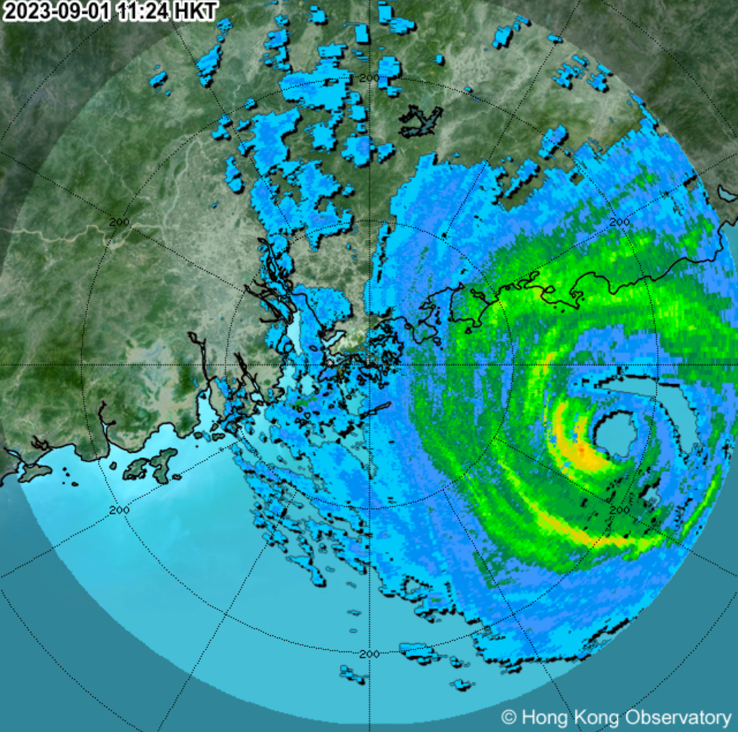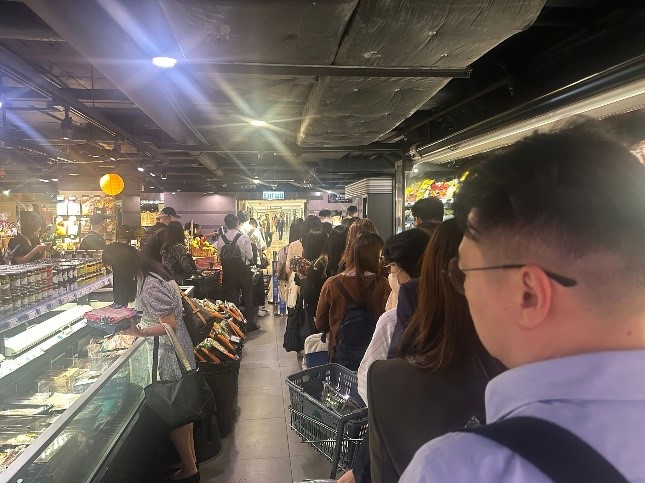Whatever the Weather
Sep 7, 2023
The passage of a severe typhoon last weekend, the first for this academic year, brought with it some of the peculiar yet highly typical aspects of living in Hong Kong: class suspensions, transport disruptions, flood and gale warnings, and inevitably, empty shelves in many supermarkets. Families across Hong Kong settled down last Friday evening to ‘weather’ the storm in places of relative calm, hoping to emerge unscathed on Saturday morning.
From my perspective, there is much to be learned when experiencing such extreme weather phenomena. Whether one pays attention to those naturally occurring phenomena directly associated with the typhoon itself, or to the human responses to the perceived ‘threat’ posed by the typhoon, there is an experiential richness to be found in such unusual events.


As we journeyed through the escalating urgency of T1, T3, T8, T9 and finally, T10, I was fascinated by the experience of entering the ‘eye’ of the typhoon. At around midnight, when the eye arrived over the southern edge of Hong Kong, those weathering the storm were quite suddenly, almost magically, plunged into a sudden zone of relative quiet, albeit one that was short-lived. The Hong Kong Observatory noted for those interested in meteorological science that Severe Typhoon Saola had a very clearly defined ‘double eye-wall’ – a feature associated with particularly strong typhoons. Unfortunately, the arrival of the eye occurred very late in the evening, so with nothing to see, it was more of an auditory experience, but a rare one indeed.
The many over-stocked pantries in Hong Kong homes this week point to something else entirely. Media platforms reported panic-buying, with many stores stripped bare by members of the community fearful of shortages in the wake of the storm. It is perhaps arguable that within living memory, no weather event in Hong Kong has ever resulted in any perceptible community-wide shortage of essential goods to the point of deprivation. In fact, even public services resume quickly after weather-related disruptions. If we have not experienced ‘want’ in this way, what drives our behavior to ‘stock-up’ beyond reasonable quantities? Some might say it is the ‘fear of missing out’, leading to a sort of viral phenomenon in which the actions of a few spiral into a more widespread panic. Others point to uncertainty as a factor, where prudent provision for the unknown generates its own accelerating social dynamic. No matter the cause, our propensity to make extreme or exaggerated preparations to meet certain risks is worthy of note, particularly when some more pressing global dangers result in little or no action at all. Some might say, with an appropriate degree of irony, that climate change is such an example.


With the return to normality this week, perhaps we should take a moment to reflect on this episode while it is still fresh in our memories. It is an inevitable element of the human experience that we will always face perilous natural or environmental phenomena that pose risks, but which also offer the chance to adapt, observe, analyze, reflect, and learn. It is the way our world is built. There will always be another ‘black rain’ or T10 lurking around the corner. We should bear in mind that whatever the weather brings, we can gain in experience, knowledge, skill, and perhaps wisdom.
Dr. Malcolm Pritchard
Head of School
